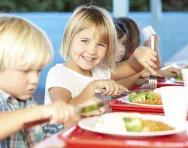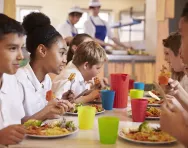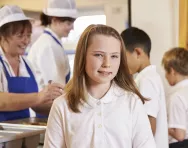Important update from TheSchoolRun
For the past 13 years, TheSchoolRun has been run by a small team of mums working from home, dedicated to providing quality educational resources to primary school parents. Unfortunately, rising supplier costs and falling revenue have made it impossible for us to continue operating, and we’ve had to make the difficult decision to close. The good news: We’ve arranged for another educational provider to take over many of our resources. These will be hosted on a new portal, where the content will be updated and expanded to support your child’s learning.
What this means for subscribers:
- Your subscription is still active, and for now, you can keep using the website as normal — just log in with your usual details to access all our articles and resources*.
- In a few months, all resources will move to the new portal. You’ll continue to have access there until your subscription ends. We’ll send you full details nearer the time.
- As a thank you for your support, we’ll also be sending you 16 primary school eBooks (worth £108.84) to download and keep.
A few changes to be aware of:
- The Learning Journey weekly email has ended, but your child’s plan will still be updated on your dashboard each Monday. Just log in to see the recommended worksheets.
- The 11+ weekly emails have now ended. We sent you all the remaining emails in the series at the end of March — please check your inbox (and spam folder) if you haven’t seen them. You can also follow the full programme here: 11+ Learning Journey.
If you have any questions, please contact us at [email protected]. Thank you for being part of our journey it’s been a privilege to support your family’s learning.
*If you need to reset your password, it will still work as usual. Please check your spam folder if the reset email doesn’t appear in your inbox.
Free school meals: your questions answered

What are free school meals for infants?
Since September 2014, all children in Reception and Years 1 and 2 at state schools in England have been offered a free school lunch, regardless of their family’s financial circumstances.
Children in Years 3 to 6 still have to pay for lunch, unless they are eligible for free school meals because their families receive certain benefits.
Why are free school meals for infants being provided?
Free school meals for infants are provided under the Children and Families Act, which came into force in March 2014. It’s based on solid evidence that well-nourished children perform better at school. In pilot areas, children who had a school meal at lunchtime were found to be two months ahead of their peers academically.
Offering a free school meal promotes the healthy eating message by providing nutritionally balanced meals. Before the new initiative was introduced, under 50 per cent of children had school dinners, and only one in 100 packed lunches met the nutritional standards required of school meals. Research has shown that children are 23 per cent more likely to eat vegetables at lunchtime if they have a school dinner.
Universal free school meals also help families save money. About four out of 10 children live in poverty, and not all of them meet the current criteria for free school meals. Buying a school dinner every day for an academic year costs the average family £437, and a survey by The Guardian found that half of teachers have taken food into school for hungry children.
What sort of meals are on offer?
New rules introduced in January 2015 stipulate what schools can and can't serve at lunchtime. Meals have to adhere to the nutrient-based standards for schools, which set out precise requirements such as calorific value, minimum levels of key nutrients like iron, calcium and carbohydrate, and maximum levels of salt, fat and sugar. The new rules also state that:
- One or more portions of vegetables or salad must be offered every day
- At least three different types of fruit and three different vegetables must be offered across the week
- Wholegrain foods should be used as much as possible, rather than refined carbohydrates
- Water should be the drink of choice
- Fruit juice can be served in portions of no more than 150ml
- Added sugars or honey in other drinks are restricted to five per cent
- Deep-fried, battered or breadcrumbed food can be served no more than twice a week
- Pastry products can only be served twice a week
- One portion of low-fat milk has to be offered every day
Schools are being advised to develop menus that are appealing and familiar to children, and to keep meals simple, with not too many options, to make it easy for them to choose.
Where’s the money coming from?
The government provides schools with a fixed amount per child per day to cover the cost of free school meals.
What if my child has special dietary requirements?
Schools are expected to make reasonable adjustments for children who have special dietary requirements, whether these are religious, medical or ethical.
If your child has dietary needs, ask to speak to the head teacher about their requirements, backing up your request with medical notes, if you have them. Ideally, schools should involve parents and catering staff in coming up with meal plans for children with special dietary requirements, with the help of a dietician if necessary.
My child prefers packed lunches. Do they have to have free school meals?
No. Although all infant school children have to be offered a free school meal, it’s not compulsory to accept. Schools are free to set their own policies for bringing packed lunches, and this won’t change under the new system. Around 87 per cent of children in Reception and Years 1 and 2 will take their free meals.
How do I sign up?
This is up to each individual school, but you’ll probably receive a form from your child’s school to state whether you intend to take up their free school meals. Schools are also being encouraged to work with parents and children to make school dinners an appealing prospect, for example through menu consultations and tasting sessions. Salmon fishcakes with sweet potato wedges? Sign us up!
Free school meals in KS2 and beyond
Children in Years 3 and above aren't automatically entitled to free school meals; however, they may be eligible if their family receives certain benefits, including:
- Universal credit, if your household income is under £7,400 per year after tax, and not including any other benefits
- Income support
- Income-based Jobseeker's Allowance
- Working Tax Credit run-on, paid for four weeks after you stop receiving WTC
- Child Tax Credit, providing you're not also entitled to WTC and have a household income of no more than £16,190 per year
- The guaranteed element of Pension Credit
- Support under part VI of the Immigration and Asylum Act 1999
If you think that you may be eligible for free school meals, visit the Free School Meals Eligibility Checker and enter the required details.
If your child has received free school meals at any point but no longer meets the eligibility criteria, they'll still be entitled to free school meals until they reach the end of the stage of education (primary or secondary school) they're in on 31 March 2022.







